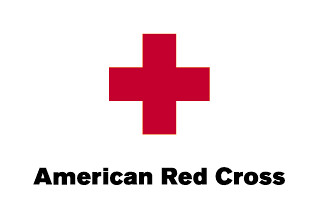Hurricane Katrina Summary

From Fox News
A helicopter flyover (shown on MSNBC) around Biloxi, Mississippi, shows almost total destruction, with smashed homes and denuded trees stretching as far as the camera can see. Storm surge reached several miles inland, destroying homes, businesses, and bridges. One scene showed a long viaduct which had lost every single span. Farther down the Mississippi coast, a barge which had lain moored in the Gulf of Mexico now lay beached, inland of the coastal highway which was still passable.
In Mobile, Alabama, cleanup is beginning from the storm surge flooding that occurred there, but it appears that while serious, the damage is repairable, and losses comparatively light.
In New Orleans, chaos reigns. Reports of widespread looting and general lawlessness are common, and a dire need to continue search and rescue operations means that looting will continue for some time. It is reported that the Lousiana governor will be asking for federal troops to assist in maintaining law and order, and rumored that New Orleans will be placed under martial law.
Breaking New Orleans News: WWL-TV.
There has been little news from anywhere else in southern Louisiana. All Louisiana eyes appear to be on New Orleans.
More Information:
NOLA.com
WWL TV, New Orleans
MichelleMalkin.com
To help:
American Red Cross
On a personal note - I am going to avoid making any more major updates on Hurricane Katrina's wake here, due to a seeming lack of interest. Instead, I will post these on The Pacific Slope.
So what does all this mean?
Aside from being the largest and most costly natural disaster of modern American history in financial terms, it is appearing that Hurricane Katrina will be the most deadly American natural disaster in fifty years, with hundreds killed.
A stretch of coastline running from roughly west of the mouth of the Mississippi River east to the Florida-Alabama border has been pounded, with serious structural and flood damage. Every town on the Mississippi coast has been devastated; reports are that 90% of the structures in Biloxi, Mississippi, have been destroyed. Not damaged - destroyed.
The city of New Orleans is going to be flooded - in its entirety, including downtown and the French Quarter, up to a level of three feet above sea level. In short, the city of New Orleans is becoming an inlet of Lake Pochatrain.
Aside from this damage, which will have a definite and serious economic impact, there is the damage to the oil and natural gas infrastructure in and around southern Louisiana. Roughly 8% of US crude is produced and 11% of all oil imported into the US passes through New Orleans, and offshore fields are a major source of US natural gas. More pressing are the refineries. They take time to repair and bring back online.
The refineries are the kicker. Loss in gasoline and diesel production due to refinery damage will drive up gas prices and put inflationary pressure on all prices as transportation costs concurrently rise.
The entire country will feel a pinch. The Gulf Coast will never be the same.















